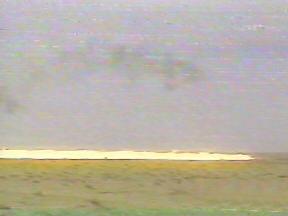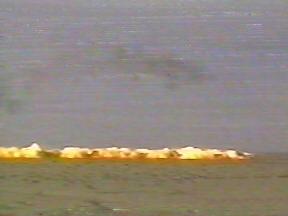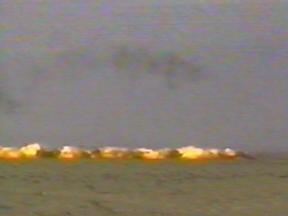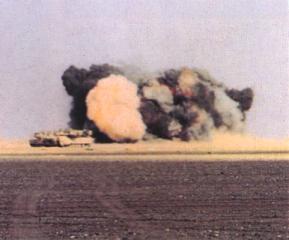| |
Documents |
|
|
CURRENT NEWS |
|
CASE NARRATIVES |
|
ENVIRONMENTAL EXPOSURE REPORTS |
|
HELP FOR VETERANS |
|
|
||||
Demolitions
- In essence more than 2,000 total demolitions happened
- in a short space of time during the Gulf War. The end
- goal was making sure Iraq could not get back to the
- weapons and equipment, and to keep American troops
- from harm. Thus the Denial operations took place, and
- quite a few EOD specialist were called in to work a
- large variety of issues.
- However, many didn't recognize what they were inventorying
- in bunker complexes, and others knew that a combination
- of ammunition lay scattered throughout and said little. There
- were chemical mines, chemical/biological RPG's, a mixture of
- SCUD and FROG war heads, and assorted artillery including
- mustard shells. There would be cases or crates with plastic
- covered shells, sweating and dripping inside the plastic- this
- was also odd because most rounds either came in laying
- in straw ( not wrapped in drape plastic ) or laying in wooden
- cradles inside the boxes. Many would have a large screw
- plug in front, with instruction on side saying "pour here".
The goal was to blow most things in place, and go on.
One thing that would seem odd was the use of accelerants- to blow these materials. An accelerant is used to burn a
- organic / chemical object, and most accelerants were little
- more than gasoline or thinner. It is fairly useless on metal
- objects because of its poor concussive qualities, and anything
- thicker 30 gauge metal it simply didn't effect except maybe
- heat warp if it got hot enough.
You need High Explosives to crack metal casings, or fracture- thick metal objects. HE explosives are not very exciting either,
- they dont generally produce the fireballs you see in Hollywood
- movies. There is a shockwave, and a gray white smoke. Very
- little if any flame at all.
- Many Gulf War demolitions would be fireballs, with
- smoldering fires that would end up producing secondary
- explosions that caught many engineers off guard. Then
- would come the colored smoke plumes from these fires
- that made people sick.
- Khamasiyah would end up being the most famous demolition,
- bunker 73 was a huge stockpile. But, DOD would work hard
- to try, and disqualify all testimonies and down play the event.
- Then Dr. Bernard Rostker would later state that there were
- NO chemical ammunition south of Khamasiayh. This would
- mean that all the ammunition seen by these troops now didnt
- exist anymore. Finally, they would even try to say that Chemical
- ammunition at Khamasiyah was UNLIKELY.
______________________________________________
- These are stills taken from Gulf War footage of MICLIC
- charges clearing areas. MICLIC was for clearing mine
- feilds, and was a tethered round shot from a vehicle. The
- point of interest here is the amount of flame in these
- demolitions, which isnt necessary for metal objects. In
- fact, if not hot enough it simply activates some types of
- chemical ammunition - called bianaries.



- In this demolition, notice the color of the smoke
- cloud boiling up - including orange and blue/black
- smoke.




This one was litterally included in the 1st AD
memorial handout book. Which would come- back to haunt them later.
